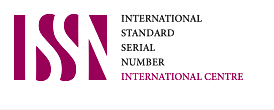MAXIMIZING MILLENNIAL JOB SATISFACTION: THE KEY ROLES OF MEANINGFUL WORK AND RESILIENCE
Abstract
The millennial generation has different characteristics from previous generations. It is important for organizations to know the characteristics of millennials because they can bring advantages and disadvantages to the organization. This research aims to determine the magnitude of the influence of learning agility, meaningful work, and resilience on job satisfaction of the millennial generation. A quantitative causality design was applied in this research. Respondents were 100 millennial workers in Indonesia. Research data was taken via Google Form via Facebook, WhatsApp and Linked-in. Data analysis was carried out using the PLS SEM method. The research results show that learning agility has no effect on millennial job satisfaction. Meaningful work has a significant positive effect on millennial job satisfaction. Resilience has a significant positive effect on millennial job satisfaction. Future research can limit respondents to one sector, such as private and public. Future researchers can use the mediation of meaningful work and resilience on the influence of learning agility on job satisfaction. This research contributes to efforts to increase job satisfaction of the millennial generation through learning agility, meaningful work and resilience.
Keywords
Full Text:
PDFReferences
Adamchik, V. A., Hyclak, T. J., & Sedlak, P. (2022). Organizational hierarchical position, perception of unfair pay, and job satisfaction: evidence from large nation-wide surveys in Poland. Baltic Journal of Management, 17(5), 621–636.
Allan, B. A., Batz-Barbarich, C., Sterling, H. M., & Tay, L. (2019). Outcomes of meaningful work: A meta‐analysis. Journal of Management Studies, 56(3), 500–528.
Allan, B. A., Dexter, C., Kinsey, R., & Parker, S. (2018). Meaningful work and mental health: Job satisfaction as a moderator. Journal of Mental Health, 27(1), 38–44.
Aziz-Ur-Rehman, M., & Siddiqui, D. A. (2019). Relationship between flexible working arrangements and job satisfaction mediated by work-life balance: Evidence from public sector universities employees of Pakistan. Available at SSRN 3510918.
Bedford, C. L. (2011). The Role of Learning Agility in Workplace Performance and Career Advancement. In University of Minnesota.
Brown, R., Wey, H., & Foland, K. (2018). The relationship among change fatigue, resilience, and job satisfaction of hospital staff nurses. Journal of Nursing Scholarship, 50(3), 306–313.
Campione, W. A. (2014). The influence of supervisor race, gender, age, and cohort on millennials’ job satisfaction. Journal of Business Diversity, 14(1).
De Meuse, K. P. (2019). A Meta-Analysis of the Relationship between Learning Agility and Leader Success. Journal of Organizational Psychology, 19(1), 25–34. https://doi.org/10.33423/jop.v19i1.1088
Delloite. (2023). 2023 Gen Z and Millennial Survey. https://www.deloitte.com/global/en/issues/work/content/genzmillennialsurvey.html
Gallup. (2016). How Millennials Want to Work and Live. https://www.gallup.com/workplace/238073/millennials-work-live.aspx
Garg, K., Dar, I. A., & Mishra, M. (2018). Job satisfaction and work engagement: A study using private sector bank managers. Advances in Developing Human Resources, 20(1), 58–71.
Ghandi, P., Hejazi, E., & Ghandi, N. (2017). A study on the relationship between resilience and turnover intention: with an emphasis on the mediating roles of job satisfaction and job stress. Bull. Soc. R. Sci. Liege, 86, 189–200.
Ghislieri, C., Cortese, C. G., Molino, M., & Gatti, P. (2019). The relationships of meaningful work and narcissistic leadership with nurses’ job satisfaction. Journal of Nursing Management, 27(8), 1691–1699.
Kim, M. J., & Kim, S. H. (2021). The Effect of Learning Support Leadership on Learning Agility and Job Satisfaction of Organizational Members. International Journal of Advanced Culture Technology, 9(1), 152–161.
Kim, S. M., & Hong, A. (2022). Influence of Learning Agility on Organizational Citizenship Behavior and Moderated Mediating Effect of Job Autonomy and Job Embeddedness. Global Creative Leader: Education & Learning, 12(1), 215–242.
Meneghel, I., Borgogni, L., Miraglia, M., Salanova, M., & Martinez, I. M. (2016). From social context and resilience to performance through job satisfaction: A multilevel study over time. Human Relations, 69(11), 2047–2067.
Muchtadin, M., & Sundary, Z. E. (2023). Pengaruh Motivasi Intrinsik Terhadap Work Engagement yang Dimediasi Learning Agility Pada Perawat Pertamina Bina Medika. Jurnal Al Azhar Indonesia Seri Ilmu Sosial, 4(3), 158–164.
Pradipto, Y. D., & Chairiyati, L. R. (2021). The role of authentic leadership, self-efficacy, job satisfaction and employee silence to organizational commitment among millennials. IOP Conference Series: Earth and Environmental Science, 729(1), 12092.
Riyanto, S., Handiman, U. T., Gultom, M., Gunawan, A., Putra, J. M., & Budiyanto, H. (2023). Increasing Job Satisfaction, Organizational Commitment and the Requirement for Competence and Training. Emerging Science Journal, 7(2), 520–537.
Sapyaprapa, S., Tuicomepee, A., & Watakakosol, R. (2013). Validation of psychological capital questionnaire in Thai employees. Proceedings of the Asian Conference on Psychology and the Behavioral Sciences. Tokio, Japón, 394–399.
Sofiah, D., Hartono, M., & Sinambela, F. (2022). Millennial’s Organizational Citizenship Behavior (OCB). Interdisciplinary Conference of Psychology, Health, and Social Science (ICPHS 2021), 76–83.
Spreitzer, G. M. (1995). Psychological empowerment in the workplace: Dimensions, measurement, and validation. Academy of Management Journal, 38(5), 1442–1465.
Tirta, A. H., & Enrika, A. (2020). Understanding the impact of reward and recognition, work life balance, on employee retention with job satisfaction as mediating variable on millennials in Indonesia. Journal of Business and Retail Management Research, 14(3), 88–98.
Tripathi, A., Srivastava, R., & Sankaran, R. (2020). Role of learning agility and learning culture on turnover intention: an empirical study. Industrial and Commercial Training, 52(2), 105–120.
Waltz, L. A., Munoz, L., Weber Johnson, H., & Rodriguez, T. (2020). Exploring job satisfaction and workplace engagement in millennial nurses. Journal of Nursing Management, 28(3), 673–681.
Waworuntu, E. C., Kainde, S. J. R., & Mandagi, D. W. (2022). Work-Life Balance, Job Satisfaction and Performance Among Millennial and Gen Z Employees: A Systematic Review. Society, 10(2), 286–300.
Zheng, Z., Gangaram, P., Xie, H., Chua, S., Ong, S. B. C., & Koh, S. E. (2017). Job satisfaction and resilience in psychiatric nurses: A study at the Institute of Mental Health, Singapore. International Journal of Mental Health Nursing, 26(6), 612–619.
DOI: http://dx.doi.org/10.22441/biopsikososial.v8i1.24291
Refbacks
- There are currently no refbacks.
Copyright (c) 2024 Biopsikososial: Jurnal Ilmiah Psikologi Fakultas Psikologi Universitas Mercubuana Jakarta
JBUMBand its articles is licensed under a Creative Commons Attribution-ShareAlike 4.0 International License.
Tim Editorial Office
JBUMB
Fakultas Psikologi, Universitas Mercu Buana
Jalan Meruya Selatan No. 1, Kembangan, Jakarta Barat, 11650, Indonesia
Phone: +6281318855243
Email: [email protected]
Website: https://publikasi.mercubuana.ac.id/index.php/biopsikososial/index

















